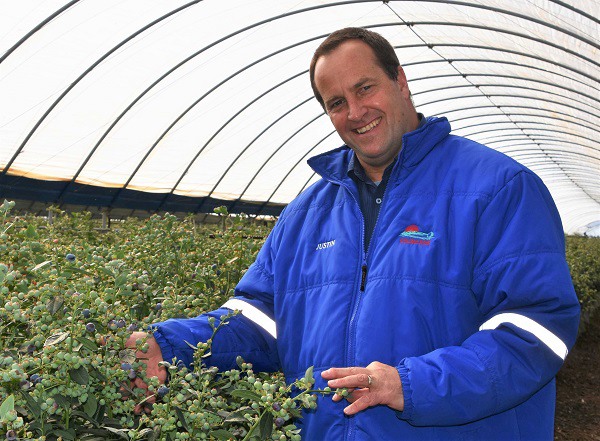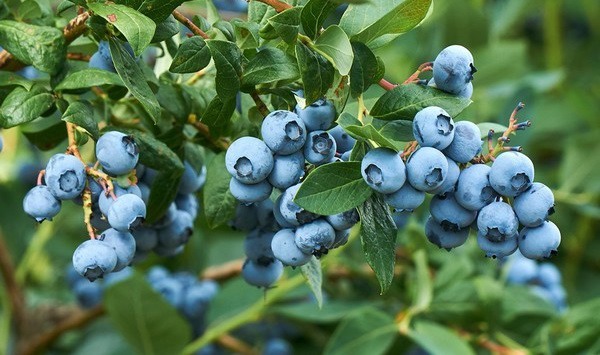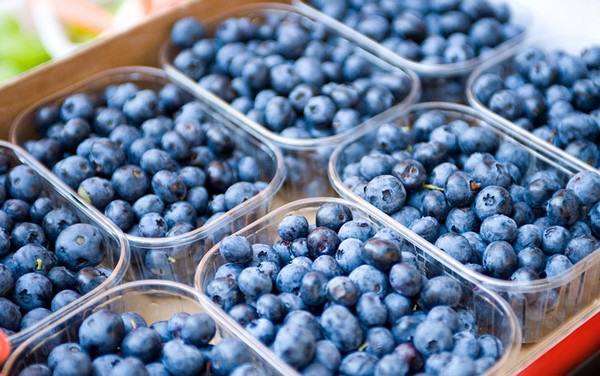No good crisis ought to go wasted, believes Justin Mudge, blueberry farmer and chair of the board of BerriesZA for the past four years, during which they’ve had no such shortage.
At Macfrut next month he will be explaining why he believes that in the blueberry industry, only the robust and resilient will survive and will definitely make a success of it.
Justin believes that a stratified berry industry has been gathered together by BerriesZA, coalescing around common problems like the chemical application and registration process which is, he says, an absolute struggle or the status quo at South Africa’s ports, of which Justin has been an outspoken critic.
“Undoubtedly we face a massive collective challenge. Something like the port strike last year, where I was particularly vocal, also created more of a common understanding that you need a mouthpiece for industry and you can’t do this alone.”
Elzette Schutte, operational manager of BerriesZA, has been there from the start. She says: “There has been no real change in the number of blueberry growers, but we have seen an increase in the associated membership, with more exporters and nurseries joining the industry.”  Justin Mudge on Chiltern Farms in the Theewaterskloof, a family farm annually packing 1.5 million cartons of pome fruit and 3,000 tons of blueberries (photo supplied)
Justin Mudge on Chiltern Farms in the Theewaterskloof, a family farm annually packing 1.5 million cartons of pome fruit and 3,000 tons of blueberries (photo supplied)
Chinese import needs in 5 years far exceed entire South African crop
The industry hopes to have India and Israel open to them during the season ahead.
“Market access is such a slow-burning fuse,” Justin remarks, “but we are getting good support and working well with the Department of Agriculture, Land Reform and Rural Development.”
China is the market they really want opened: the country is predicting a need for 10,000 containers of blueberries a year out of the Southern Hemisphere in five years’ time. “That equates to 10 x the current South African exports,” he says.
“If we continue on the current route [of no access into China] that opportunity will pass us by and those blueberries will be produced elsewhere in the Southern Hemisphere and South Africa will allow others to effectively eat our lunch.”
Currently access into China for South African avocados is under review, a process which typically takes a number of years.
BerriesZA believes that the case for blueberries should be considered next, when avocados have the green light, but it is currently uncertain whether a principle of prioritization will be followed.
He adds: “That’s unbelievably frustrating to hear as a producer.”

More price mechanisms needed
Everyone planted everything everywhere, with very little predictor of success, he says, and the industry has seen a lot of casualties through varieties that didn’t perform in certain regions or routes to market that were not well understood.
“There’s a lot of opportunity now to approach the industry with the appropriate level of rational thinking. My dad told me many years ago any commodity will be produced to the limit of its profitability.”
Only those at the top end of efficiency thrive, which is why South Africa has to be more focused about how their fruit is marketed into Europe.
“I would say because of the traditional stratification there is an overconcentration of marketing avenues through too few channels into Europe. We need to recognize that Europe is diverse and requires a diversity of supply chains to service their individual requirements.”
He explains that production surges, especially of highly perishable products like blueberries, require a mechanism with which to flush them through the market, but that has been missing.
“We haven’t had the ability to flush things through. The only mechanism currently is price but you’re forced into situation where you’re flushing fruit through the only elastic market in Europe which is Germany where you can double your sales by halving your prices but it’s unsustainable and you can only do it for only a very short period. If you’re consistently having to drop your price to move your fruit throughout the season, the producer doesn’t survive.”

Blueberries across the border
Namibia and Zimbabwe have emerged as blueberry growers in tandem with South Africa and the potential for overlap is there, but relative to the overlap with their Peruvian counterparts, it’s insignificant and should be no issues if product is positioned well.
“Wider supply from Southern Africa is a positive in my view, it targets the region as a production area with a wide range of availability. Zimbabwean supply is kicking off even now. It gives us a long reach. We’re actively engaging with Namibia and Zimbabwe to at least understand how we can cooperate on issues of common interest and share information.”
An area of common interest is the efficiency at South African ports, and Justin tells of the heavy traffic of ships rounding the Cape of Good Hope, but bypassing the ports which have become synonymous with delays.
“It is incredibly frustrating for me how quiet industry is on the inefficiencies and lack of investment in such a fundamental economic driver. The fruit industry is in an absolute crisis.”
Nevertheless, he maintains that there is a real and present opportunity for berry farming in South Africa.
“The contextual environment in which growers operate, will ultimately determine whether we’re able to seize the opportunity or not. Because South African farmers are second to none in this world, I have no qualms in making this claim. I don’t think we need to stand in the shadows. What producers are asking for is the opportunity to leverage that the opportunity and to seize their place in the market.”  For more information:
For more information:
Justin Mudge
BerriesZA
Tel: +27 82 411 0500
Email: elzette@berriesa.co.za
https://www.berriesza.co.za/
